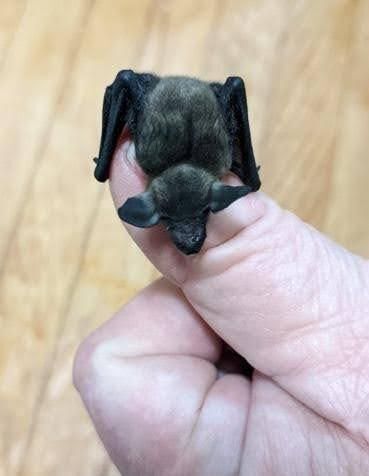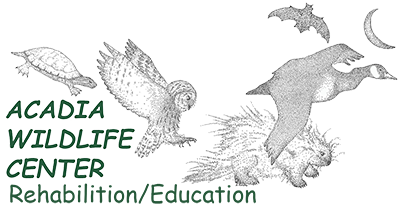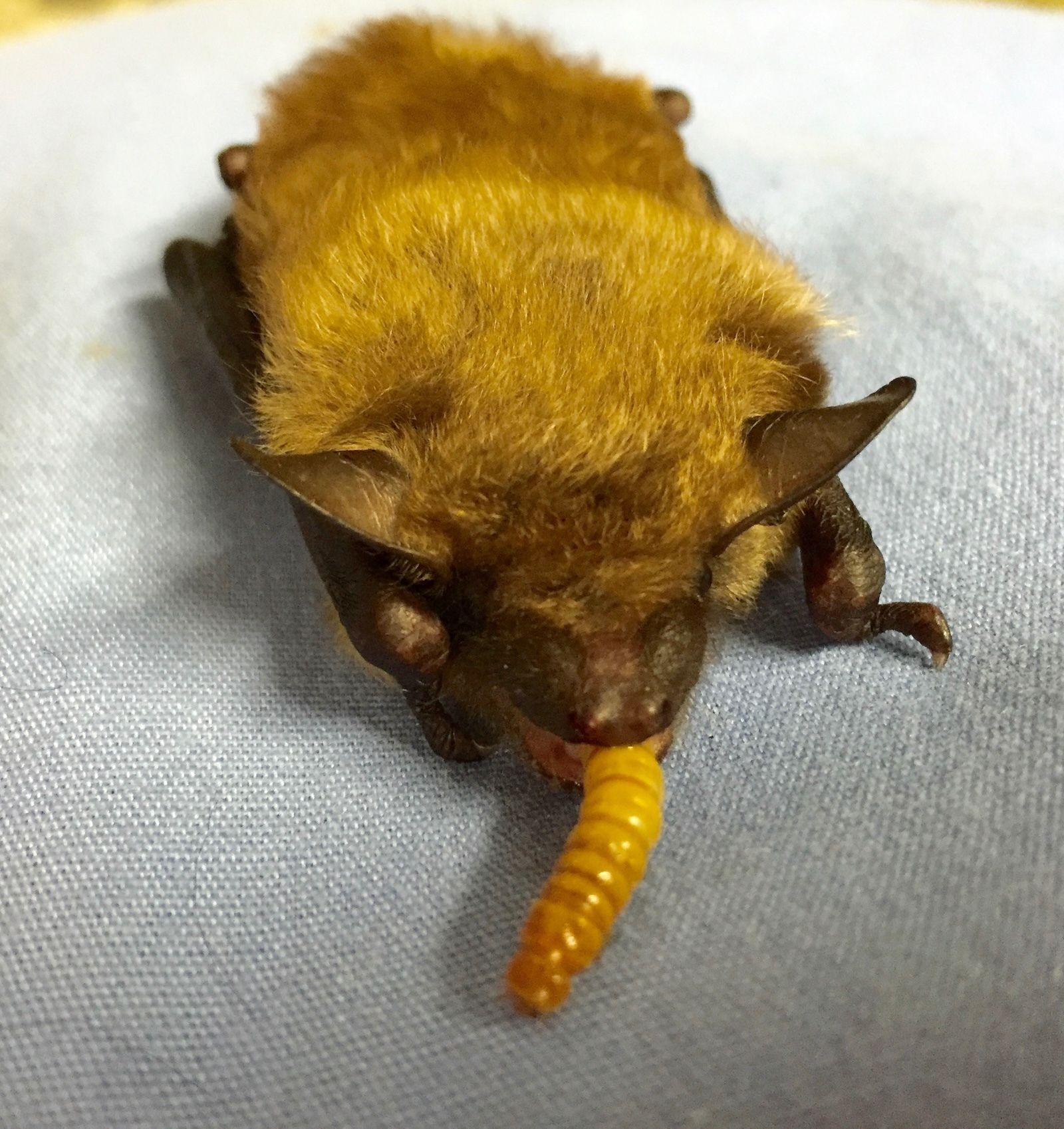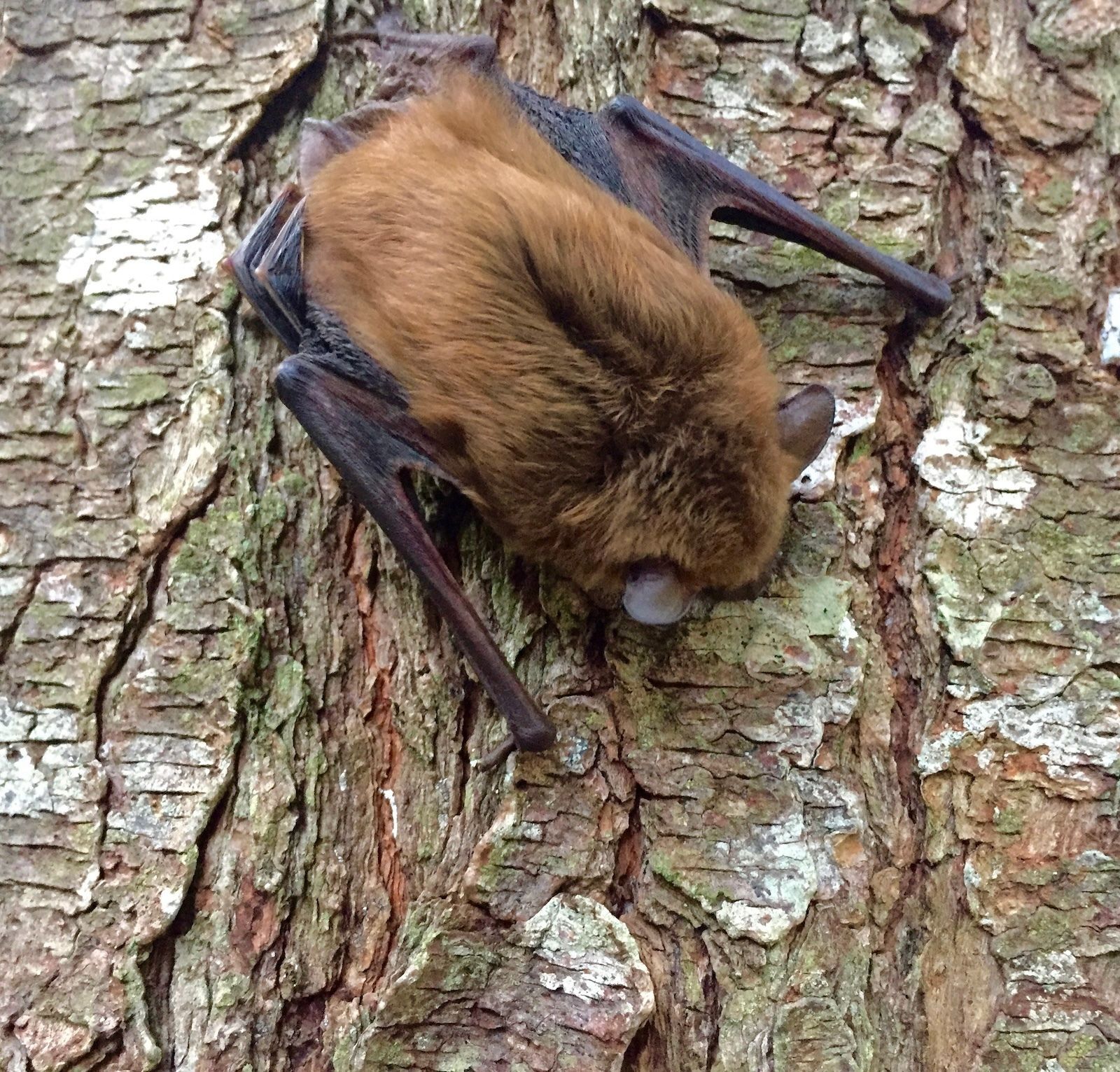
Acadia Wildlife Center specializes in the rehabilitation of bats. We have a permit to keep 8 non-releasable Big Brown Bats in a colony in our Nature Center. Bats are wonderful animals which keep all kinds of insects under control from mosquitoes to potato beetles. They used to cover the sky in the evenings, but a non-native fungus called Pseudogymnoascus destructans which causes White-nose Syndrome was carried, probably on climbing gear, from Europe where the bats are used to it, to a cave in New York. From there it spread causing one of the worst wildlife disease epidemics in modern times. Millions of bats of many species have already died: 99% of Little Brown Bats are gone. Since 2007-2008 the fungus has spread from a single cave to 40 states and 8 Canadian provinces.
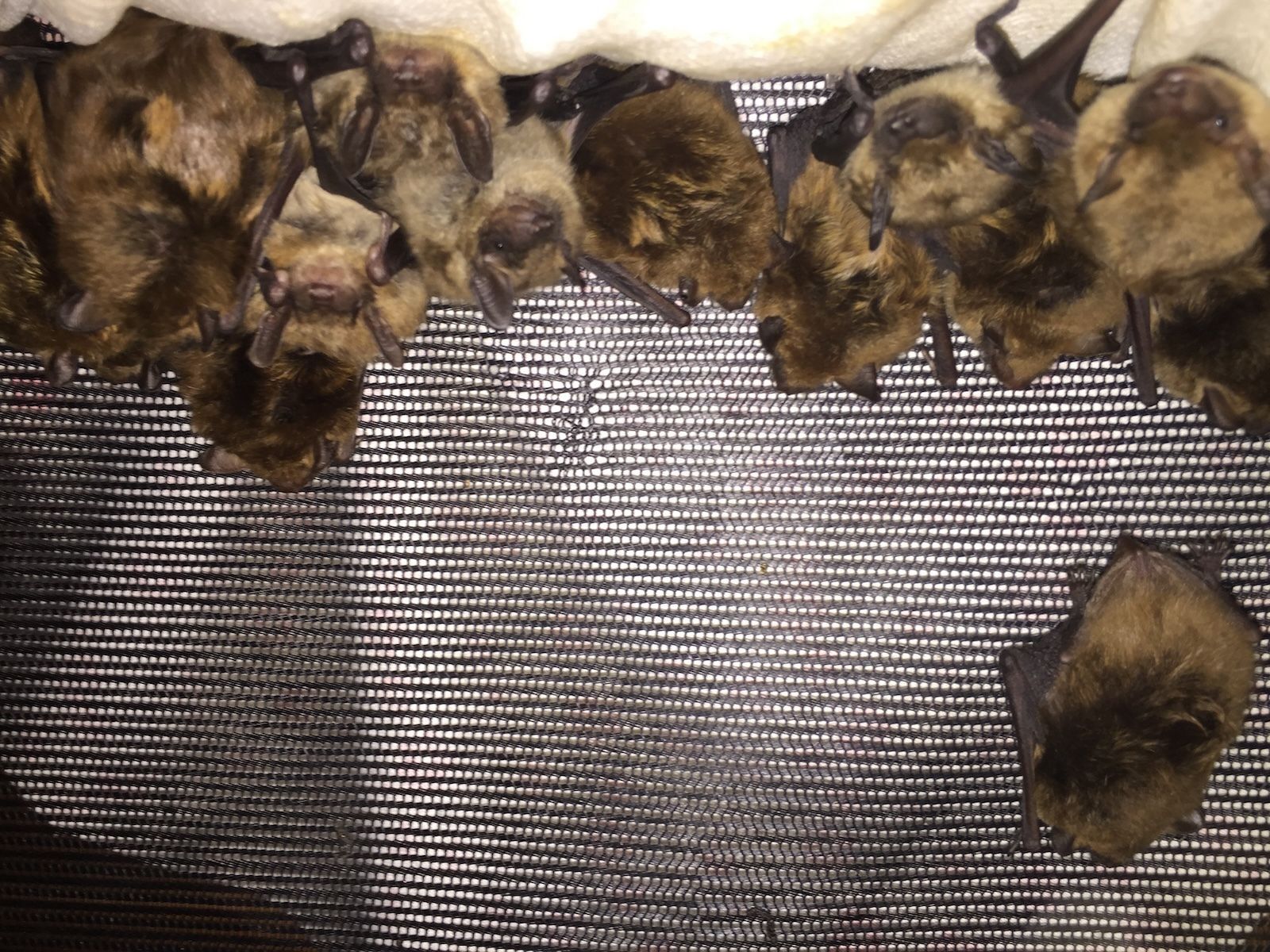
Bats are fragile creatures who are injured by cats and dogs, glue traps, pesticides, and frightened humans. Big Browns tend to hibernate in the cool attics of old homes or barns and are sometimes woken up by someone exploring the attic or doing construction. Once woken in the winter, bats don’t have enough stored fat to go back into hibernation and frantically fly or crawl about the house looking for safety or food. These individuals should be picked up with gloves (they are a species that can rarely carry rabies) put into a small box under a cloth with tiny air holes and kept warm until a rehabilitator is called. They cannot go outside when the temperatures are below 45 degrees. In summer a wandering bat can be excluded by opening a window in the evening, or gently picking them up when they are not flying with a glove or a cloth and put outside.
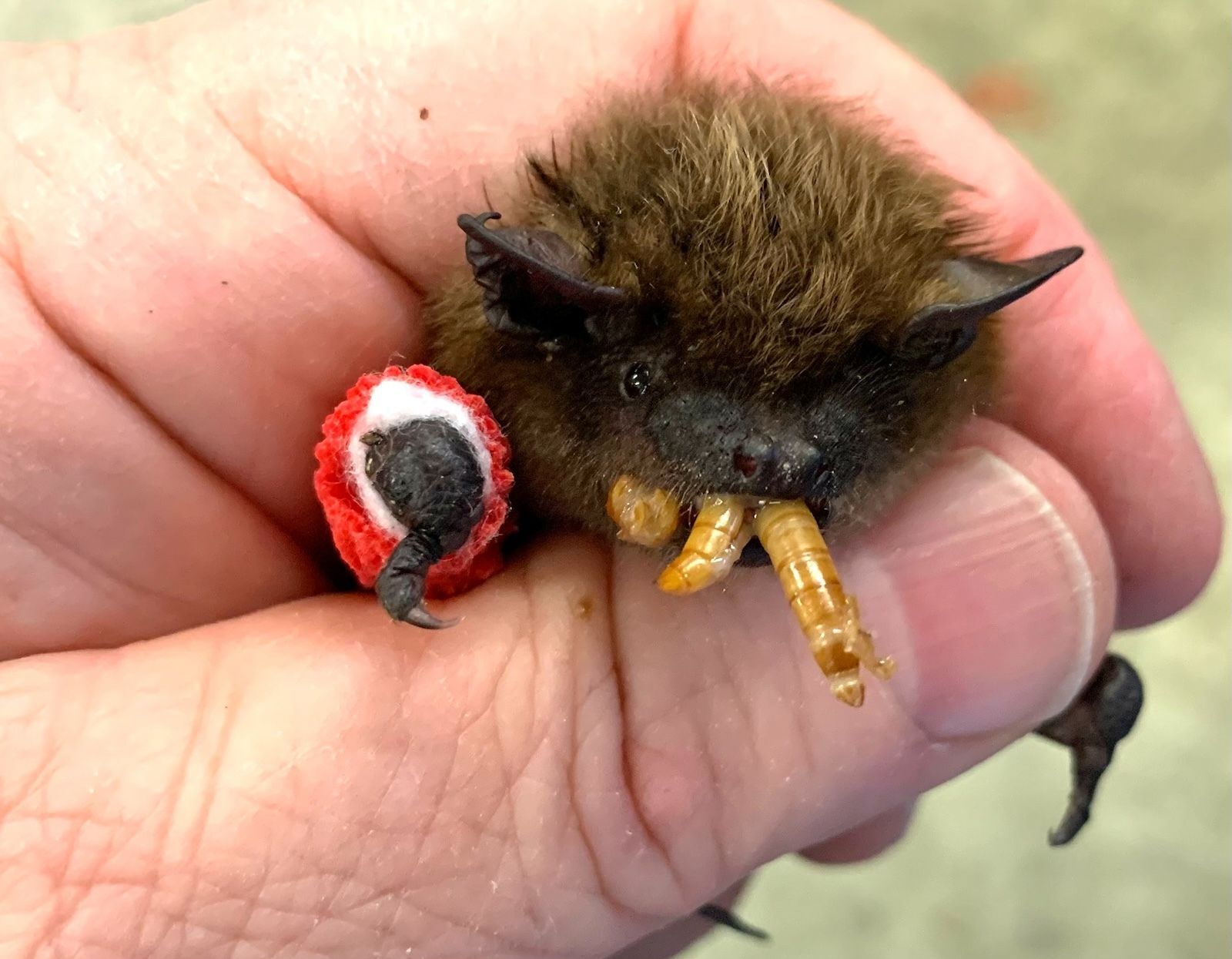
Always use gloves. Many pictures of rehabilitators do not have gloves because it is hard to feed a 3-gm baby or set a wing on a 12-gm adult with gloves on, but we able to do this because we all have our pre-exposure rabies shots and are safe- you are not. I could fill a book with all the wonderful things I would like to say about bats, and my deep fear about their possible extinction, but will just encourage you to call an experienced rehabilitator for any questions or problems you encounter.
